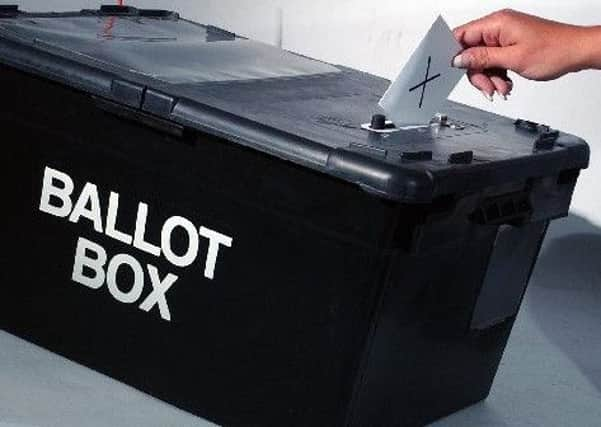Leader comment: After the confusion, a clear choice emerges


What no-one anticipated was how poor Mrs May’s campaign would be, and today we have the once unimaginable prospect of Labour leader Jeremy Corbyn – yes, the unelectable Jeremy Corbyn – having closed the gap by enough to make tomorrow’s ballot a genuine contest. If voters do not want Theresa May to continue as Prime Minister, they have a clear alternative. Meanwhile in Scotland, the defining issue of the campaign has been the desirability of a second independence referendum, and the resurgence of the Conservative Party has given voters a clear choice between union and independence, should they wish to cast their vote on the constitutional question.
The Scotsman has spent the past seven weeks exploring these issues, and we hope that we have brought you a wide range of views and varied analysis of the key issues, from all political perspectives. We strive to go beyond the political rhetoric of the party leaders, and get inside the issues that our readers want to know most about. But having laid out the various cases, and made our observations on the pros and cons in key areas, we now leave the final decision up to you. We will not tell you how to vote in this election, or in any future independence referendum, because every one of you will make up your own mind on the evidence available. A significant number of voters will be loyal to a party, and others will have known which way they will vote since the day the general election was announced. It serves no useful purpose to say that the newspaper takes the opposite view, and by inference, tell those readers that they are wrong.
Advertisement
Hide AdAdvertisement
Hide AdThis was the commitment we made in our own election manifesto on 2 May. For those who may have missed it, the pledge was inspired by the words of the Scotsman prospectus which pledged “impartiality, firmness and independence”. And on its 200th anniversary, The Scotsman called on those values to declare: “This title is politically independent and we believe that a quality newspaper should strive to present the facts without this being coloured by a political rosette.”
We have virtually stood alone on that front. A number of newspapers – usually titles published in London with Scottish satellite operations – have been unable to conceal their desire for a particular outcome. Comment has been presented as news in pages of thinly-veiled propaganda, with journalistic principles cast to the wind.
At The Scotsman, we want simply what is best for Scotland, and that aspiration is not the exclusive preserve of one single political organisation. When we have criticised or taken a stance, it is because we believe our position to reflect what is best for the country, not because we wanted to – or were required to – reflect an affiliation.
This election was called because of Brexit, although in Scotland, Mrs May wanted it to be about independence. But instead, it has turned out to be about who we want to govern – appropriately enough – and the result will reflect more the UK’s verdict on Mrs May than its view on any other single issue.
Brexit and independence have become red herrings. Brexit will not be stopped by Friday’s result, and if there is a second independence vote, it will be some years away, as the SNP acknowledges. As we go to the polls, each of us should consider who we want to represent us at Westminster on all issues, rather than just one. Despite the impression, this vote is not a referendum.